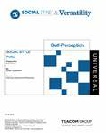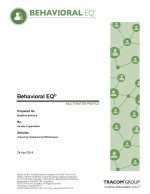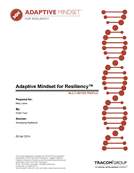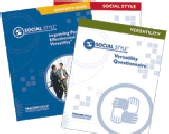Versatility
VERSATILITY is one of the three elements that make up the TRACOM Profiles, along with ASSERTIVENESS and RESPONSIVENESS. Versatility is the key to making SOCIAL STYLE work and is the ability to adjust your behaviour in various situations to achieve increased performance. This concept developed by TRACOM, is similar to the popular Emotional Intelligence theories. It is important to remember that versatility is not about changing who you are, it's about meeting the needs of others, more than your own and a desire to genuinely work well with other people.
Flexibility, responsiveness and adaptability are seen as important qualities and versatile individuals make adjustments to their behaviour by determining the SOCIAL STYLES of others and how they would prefer to be communicated with, building positive trust based relationships. By completing a self-assessment or multi-rater assessment instrument, individuals receive low, medium or high Versatility ratings. This score creates a generalisation about how you will handle the tension of interpersonal relationships. Are your actions typically focused on your own comfort level, or are you concerned about the tension your behaviour can create in others?
 Research shows people with high Versatility outperform their lower-Versatility counterparts across a spectrum of performance measures*. People consider 4 elements when determining an individual's Versatility.
Research shows people with high Versatility outperform their lower-Versatility counterparts across a spectrum of performance measures*. People consider 4 elements when determining an individual's Versatility.
IMAGE - Dress, grooming and appearance can be critical to making good first impressions. It’s not necessarily how well you’re dressed, but whether you’re appropriate for the situation. You may lose as much credibility wearing a suit to a company social outing as wearing jeans and a t-shirt to a board meeting.
PRESENTATION - Our ability to verbally communicate with others is vital as people are more likely to trust us if we present clear, well-organised ideas and use vocabulary that is appropriate to the situation.
COMPETENCE - Obviously showing competence and understanding in your work will help you gain respect, however it is also important to recognise what others are interested in, and be able to discuss those topics. The ability to listen and learn helps to build common ground, leading to mutual productivity.
FEEDBACK - In this two-way process, people send and receive both verbal and non-verbal signals to gain mutual understanding. It is vital to make sure you are clear in your communication and sensitive to the signals of others in order to minimise any chance of confusion.














